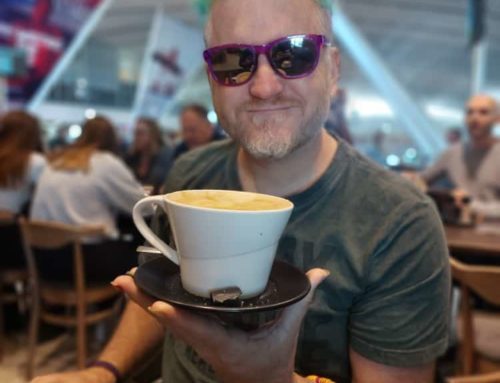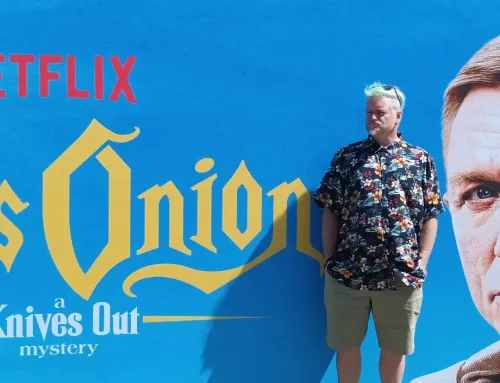A lot of people complain about South Africa or just feel completely overwhelmed by stories [and experiences] of crime or corruption and more. There is good reason for a lot of that, but if you aren’t planning on leaving the country, then it makes a lot more sense to be a part of the change.
In Part I, we looked at five practical ways at which we can genuinely get involved in seeing change in our country and here are five more:
DIVERSIFY THE VOICES IN YOUR HEAD
There are two main ways i see of changing South Africa – the one is being part of changes in the people and the places around you. But another, maybe more important one, is changing yourself. Or at least one you have a lot more control over in a way. One decision i made a year or two ago was to try and change the voices that i typically invite to inform me, in terms of books i read or messages i listen to. [Typically, before then, and not intentionally at all, it would have likely been white middle aged middle class Christian guys]. Here is an extract from a post where i touched on this before:
The question of who mentors you and the need for non-white mentors. So ask yourself this: Who were the authors of the last ten books you read? Who were the last ten speakers you listened to sermons from? Who is shaping your worldview? And if you are serious about desiring diversity then that is a good and probably quite easy place to begin.
If i continue to listen to white middle aged middle class Christian guys exclusively, then the likelihood is i will start to think and sound like them. So who are the people of colour i invite to speak into my life? What women do i look to, to help me see current events from a very different perspective? Who are the old voices i am trying to glean wisdom from and what young and upcoming leaders am i listening to who might challenge the way i have accepted for doing life?
One example of this for me is South African History. i grew up with an apartheid government carefully selected/created history syllabus in school and so that is the only very-biased history i had. But in the last year i have been privileged to get my hands on some Robert Sobukwe, Steve Biko, Antjie Krog, Frank Chikane, and have just started reading ‘Writing Black’ by Richard Rive, which i picked up at my District Six Museum visit the other day. i am slowly starting to get a more balanced idea and understanding of the story of South Africa from a number of different perspectives. This feels so important in terms of trying to be a part of any kind of change.
DEEP DIVE CONVERSATION DINNERS
They don’t have to be as formal. They don’t need to carry this name. But creating spaces for deep conversation around real life issues and needs within South Africa is a huge step towards discovering authentic and relevant solutions for the situations we face.
For tbV and me, it has been giving it a name and formally inviting people to be a part of them and we are gearing up to host our fourth Deep Dive Conversation Dinner in the second week of September.
Typically when we get together with friends we might talk about movies, sport, food, work and we seldom really get our teeth into a topic that matters. So far we have looked at Church, Race [in the context of Location – why we live where we live] and Money [What we do with what we have] and these conversations have really ended up challenging the people who have been there. We have seen some life transformation take place with people leaving challenged and starting to think different about some thing.
This is something i would LOVE to see more people getting more intentional about – our next one is Sat 12 September and i am hoping to see four other dinners happen in different places around the country and world that day so if you’re interested in hearing more let me know.
DEEPER FRIENDSHIPS WITH DIFFERENT PEOPLE
i’m convinced that single dimensional friendship groups lead to single dimensional life experiences.
That might not necessarily be a bad thing [although i suspect it is] but it is highly likely to be a boring one.
And if you are serious about change in South Africa, then you actually need to get working on this.
When we were moving back to SA from the USA where we had been for three years, this was something huge on my mind. I have a lot of friends from other race groups and cultures but have never intentionally dived deeper into relationship with many of them, often because of geographical reasons [not enough of an excuse!] and so i was interested in having some good black friends.
Fortunately i didn’t have to go all token about it. My friend Linda introduced me to Nkosi online and he wrote a couple of pieces for my blog, which you can see here and here, and we hit it off when we eventually got to meet and have been friends ever since.
Online has been a helpful place to connect with people who are separated by geography and as much as some people don’t think it’s a thing, i have really enjoyed some of the online friendships that have been building up with people in Joburg, Durban and even Zimbabwe and i look forward to the time i will get to sit down and share a drink with Sindile, Ambu, Felicity and others…
But find people who are different. Learn their names. Ask them about their stories and share some of yours. Invite them to share meals with you in your home. Do a lot of listening. See where it grows from there.
BECOME AN ALLY
In South Africa, poverty still looks pretty much black, i personally believe that the shift is moving towards being a socio-economic one and in time we will even perhaps see poverty look a lot more diverse. But right now, we are not there and so as a white person that is an area i can be more focused on.
But an important lesson i have learned in particular from observing the #BlackLivesMatter movement in Americaland, is that the white person riding in on a horse with cape waving in the air and trumpets blasting to “COME AND SAVE THE DAY” is not helpful in any way, shape or form.
i have started to learn what it means to be an Ally and a huge part of that is acknowledging that is how and where i need to position myself and to take a stance of SERVING as opposed to leading, standing alongside and cheering on as opposed to spearheading or directing. As a person who recognises the privilege i carry simply by being a white male, i can use that privilege as a resource to offer those who need to lead the drive for equality.
i can use my blog as a platform for others whose voices need to be heard on this. And most of all i can LISTEN. There needs to be a whole lot of listening. To understand how to help those who have been marginalised or are suffering the consequences of previous generations who underwent the abuse of apartheid, i cannot lead the conversation. i can LISTEN and hopefully LEARN and hopefully in part be a significant part of a change that doesn’t need to have my name anywhere on it.
BE KIND
This last one seems so small, perhaps. And so simple. And yet if each of us adopted that more in our day to day, we could see the country turned on its head.
When someone comes up to you at the traffic light begging for money or trying to sell you something, it’s okay if you say no, but look them in the eyes and perhaps give them a smile and maybe even ask them their name and then be kind in your response.
When the lady rings up your groceries after she has had a six hour shift quite possibly making less than you might be about to spend on luxuries, give her a smile and say “Thank-you’ and wish her a good evening. Be kind.
When you see someone looking at the same parking spot you were eyeing and you know that you can afford to wait another three minutes to find another one, be kind and wave them in and offer it to them.
When someones bag in front of you rips and all their stuff goes all over the floor, stop and help them pick their stuff up. If someone collapses on the street in front of you and you are scared because you don’t know what to do, stop anyway, see if they’re okay and try to get the attention of someone else who may know better than you what to do.
And if someone who is driving in front of you is visibly talking on their cellphone while they are driving, then GET OFF YOUR [insert angry adjective] PHONE BECAUSE THAT IS DANGEROUS AND YOU ARE GOING TO CAUSE AN ACCIDENT! Hold your hooter down and flash your lights at them until they get the picture and maybe they won’t do it again. But in all other cases be kind. Those jerks kind of deserve it [and sadly i have been that jerk! and i deserved it!]
But Kindness in the day to day of connecting with people – through a window, over a counter, across the street. A smiile, a wave, a friendly word. All of those can completely help transform someone’s day in a moment. And perhaps they will then do the same for the next person.
If you are not interested at all in being part of the change in my beloved country then please leave, that is all i have for you. Go. You are making it worse. But if you want to see change [despite all the despair and fear and overwhelm’ment which is all completely legitimate] then here are ten ways to get you started. Share these with your friends and let’s get on with this, South Africa…
[For a list of 10 Ways towards Effective Bridge-Building, click here]
[To return to Part I and the first Five Ways to Change Your Country, click here]










![The Road to the Catan World Champs in Malta 2022! [Part II]](https://brettfish.co.za/wp-content/uploads/2022/11/IMG_9944-scaled-e1669831201283-500x383.jpg)
[…] [For the next 5 Ways to Change Your Country for the Better, click here] […]
These are all excellent ideas! Being kind and telling the life affirming stories are for all aspects of life too!
Thank you Debbie and absolutely. Feel free to share these with your friends.
thanks for these. they definitely make the South African elephant more approachable.
if I may throw my thoughts into the pot, in my mind there are two big crises which will make or break the future of the nation. if the church in our day successfully responds to these issues, they would have hit the jackpot. they are: a) economic justice and b) land restitution.
in other words, restorative justice.
the example of Zacchaeus provides a compelling challenge to us. how do we model the story’s principles in life-giving and creative ways so that the impending uprising of the disenchanted is turned aside?
Hey buddy. Shot for stopping by. And totally agree with you on your a) and b) and finding the best way to have those conversations and move to action is the challenge.